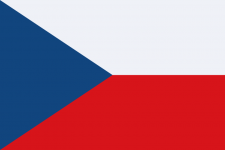
The eighth part of research series The Voice of Ukrainians in the Czech Republic follows up research carried out in 2022, which focused on the work, housing and poverty of those displaced from Ukraine in the Czech Republic.
The research involved a survey conducted in November and December across a representative sample of 1 634 refugee households. This document summarises its key findings and makes recommendations for policy makers.
Image and text source: PAQ Research 2023
Key findings
The labour market activity of refugees from Ukraine increased from 45% in the summer of 2022 to 59% by the end of the year. 15% of refugees work remotely for jobs in Ukraine. People with a university education, a good knowledge of Czech, no children, or children who attend schools or kindergartens are significantly more likely to be active in the labour market. Refugees' qualifications remain underused, with 63% working in jobs that require lower qualifications than their education level. 77% of refugees work for less than 150 CZK net (EUR 6.30) per hour.
Czech language knowledge among refugees is gradually increasing even though the share of people attending language courses (approximately 30%) has not changed. In-person courses are found to be more effective in teaching the language than online courses or self-learning. The survey found that refugees are interested in participating in language courses.
The share of refugees living in rented accommodation has increased (from 22% in June to 36% in December), while the share of those living in housing provided by Czechs has decreased (from 42% in June to 32% in December). The share of people living in mass accommodation has slightly increased (23% in June; 25% in December). The share of refugees in unpaid accommodation fell from 64% in June to 48% in December. A significant proportion of refugees continue to live in substandard housing or non-residential premises.
The number of refugee households below the income poverty line (income below 60% of the median income) has increased. While in the summer the share of such households (even after inclusion of humanitarian benefits and housing support) was 49%; by the end of the year it was 58%. Among Czechs, around 9 - 10% of households are in income poverty. At the end of the year, 61% of refugees suffered from severe material deprivation. Among Czechs, it is below 2%.
Details
- Authors
- Reseach authors: Daniel Prokop, Martina Kavanová, Michael Škvrňák, Michal Kunc, Matyáš Levinský, Adam Kořínek; Data collection: Paulína Tabery, Yana Leontiyeva, Jana Vitíková, Martin Spurný, Matouš Pilnáček, Monika Kyselá, Olga Zhmurko
- Geographic area
- Czech Republic
- Contributor type
- Academics and experts
- Original source
- Posted by
